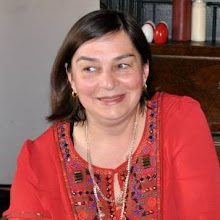When Bluechrome Publishing closed in 2009 the
disappearance of the publisher, Anthony Delgado, was a mystery that baffled
those of us involved. It’s a mystery that has remained for years – but it’s now
possible to find some answers. Along with a number of authors, I was waiting
for my book to be published by them and I was also working as Bluechrome’s
fiction editor. Despite this I was given no warning that the company was
closing and when all communication stopped I was left in as difficult a
position as everyone else.
I tried to trace Anthony for my own sake and the sake of
the other authors, as we needed to know our rights regarding our own books on
the Bluechrome list. My own poetry collection, Never-Never Land, was the last
book published by Bluechrome just as they were vanishing, so it had no launch,
no promotion and I received no royalties. I managed to get hold of the
remaining copies from the distributors, Central Books, with permission from the
book reps Inpress books: none of the people in these companies had heard from
Anthony.
He had managed to vanish very effectively. When I saw
some online book sales for Bluechrome titles I thought he was still operating,
but in fact books continue to sell via distributor, wholesalers and book reps.
Apart from wanting to sort out my contract with Bluechrome so that I could
republish my book, I was concerned about Anthony and wanted to know he was well
– he had MS and I had heard he and his family had received death threats and
other harassment from authors when new book launches were delayed in the year
before the company closed.
While trying to find Anthony I discovered that he used
the pen-name Erik Ryman for his own books. This was a surprise as he had asked
me to edit a novel by Erik Ryman without letting me know it was actually his,
but I remember how delighted he was that I ‘liked Erik’. I was supposed to
receive a small payment for editing Bluechrome books but it never arrived, not
even for the Erik Ryman novel. I never cared about the lack of payment as I
knew small publishers struggled. Along with the poetry editor and some authors
there was a lot of good will and the wish to help Anthony keep Bluechrome going
but he wouldn’t talk to us at the end.
A couple of years ago I discovered that an Erik Ryman of Bristol (like Anthony) was
active online again but there was no sign of any easy way to contact him. He was
involved with the music community, mainly on guitar forums, where he said he
had started the Jooky Guitar Emporium. Following various links I found he had
tried to set up a small family publishing venture using crowdfunding to bring
out a few books, but the amount needed hadn’t been raised.
In recent weeks the Jooky name came to my attention again
when a poet told me she had been involved in advising a new publishing company
to offer a cash prize for a poetry competition seeing as it had an entry fee.
Always interested in new publishing companies I took a look at it – the Hedgehog Poetry Press – and signed up to the e-newsletter. Along with the competition
there’s an anthology, a poetry magazine and an opportunity to have an
individual collection published. There are good marketing ideas, including the
putting together of a limited group of 100 subscribers who will be a kind of ‘literary
salon’ to support the press and to spread the word.
On the contact page I found that the press is run by
Jooky, which is a publishing company as well as a guitar emporium now, with a
few specialist musical magazines on its list. The subscription method of funding is also used by the Jooky Guitar Emporium magazines.
I see some familiar names on the
list of contributors to the Hedgehog Poetry Press magazine, including some
well-known poets. So it should be easy to find out if the Erik Ryman of Bristol
who started Jooky is the same as the Erik Ryman of Bristol who is the alias of Anthony Delgado. If so, is
he still involved with Jooky and if not, does the current owner know what happened
to him? If you’re involved with Hedgehog Poetry Press or near them in Somerset I’d be
interested to know the answers to these questions.






